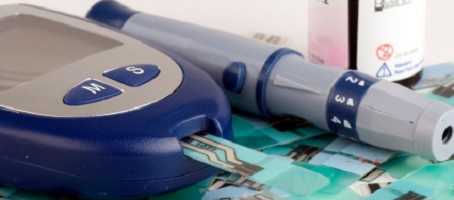The first 40 days of 2014 has seen a number of research studies showing success in producing stem cells that can, or could without too much difficulty, be developed into cells capable of producing insulin.
Research studies this year have shown that stem cells capable of maturing into insulin producing cells (beta cells) have been derived from embryo cells, from blood cells and from skin cells.
The news is exciting as insulin producing cells for use in islet cell transplants have been hard to come by, making the procedure rarely carried out and reserved for people with exceptional difficulty in adequately controlling blood glucose levels. People with type 1 diabetes that have great difficulty controlling their sugar levels and suffer frequent, unpredictable and dangerous episodes of severe hypoglycemia are usually most worthy of consideration for transplantation.
The increased availability of insulin secreting beta cells derived from stem cells is certainly good news in that it can remove an important barrier, the lack of donor islet cells currently available. However, the lack of donor cells is not the only reason why transplantation is regarded as a niche treatment.
The other main reason why transplantation is treated as a last resort option is that patients with type 1 diabetes receiving the transplanted cells need to take immunosuppressive drugs to hold back the immune system from attempting to kill off the newly transplanted cells. Type 1 diabetes is characterised by the body’s error in regarding insulin producing cells as a pathogen that needs to be destroyed.
Whilst immunosuppressive drugs are effective in this regard, the side effects of taking them include allowing the body to be more susceptible to other illnesses and infections, such as influenza.
Follow up of patients treated with islet cell transplantation shows that whilst the procedure is effective at reducing severe hypoglycemia, patients usually need to take insulin injections, albeit at reduced doses, within weeks or months of having the transplant.
So, just how useful can new stem cell techniques be? The techniques produce a number of new possibilities. Islet cell transplants may be more easily available to help patients through particularly difficult periods of blood glucose control. Transplant top ups may also become more likely for patients that have previously received islet cells but have since become depleted by the effects of the immune system.
Another development that may be seen is more research dedicated towards tackling the autoimmune response of type 1 diabetes that kills off insulin secreting cells. The mark of a real type 1 diabetes cure is if the immune system can be prevented from killing these cells without suppressing the immune system’s ability to fight illness and infection.
If researchers can indeed find a way to either stop, or significantly hold back, the autoimmune response of type 1 diabetes, then stem cells will present a way for those that have had type 1 diabetes, for months or years, to produce insulin again.
The other advantage of a greater availability of islet cells is that it could enable people with type 2 diabetes that have also lost significant ability to produce insulin (this is not via an autoimmune response), to also be offered transplanted cells which could allow a number of people with type 2 diabetes on insulin to come off their injections.
What's new on the forum? ⭐️
Get our free newsletters
Stay up to date with the latest news, research and breakthroughs.







